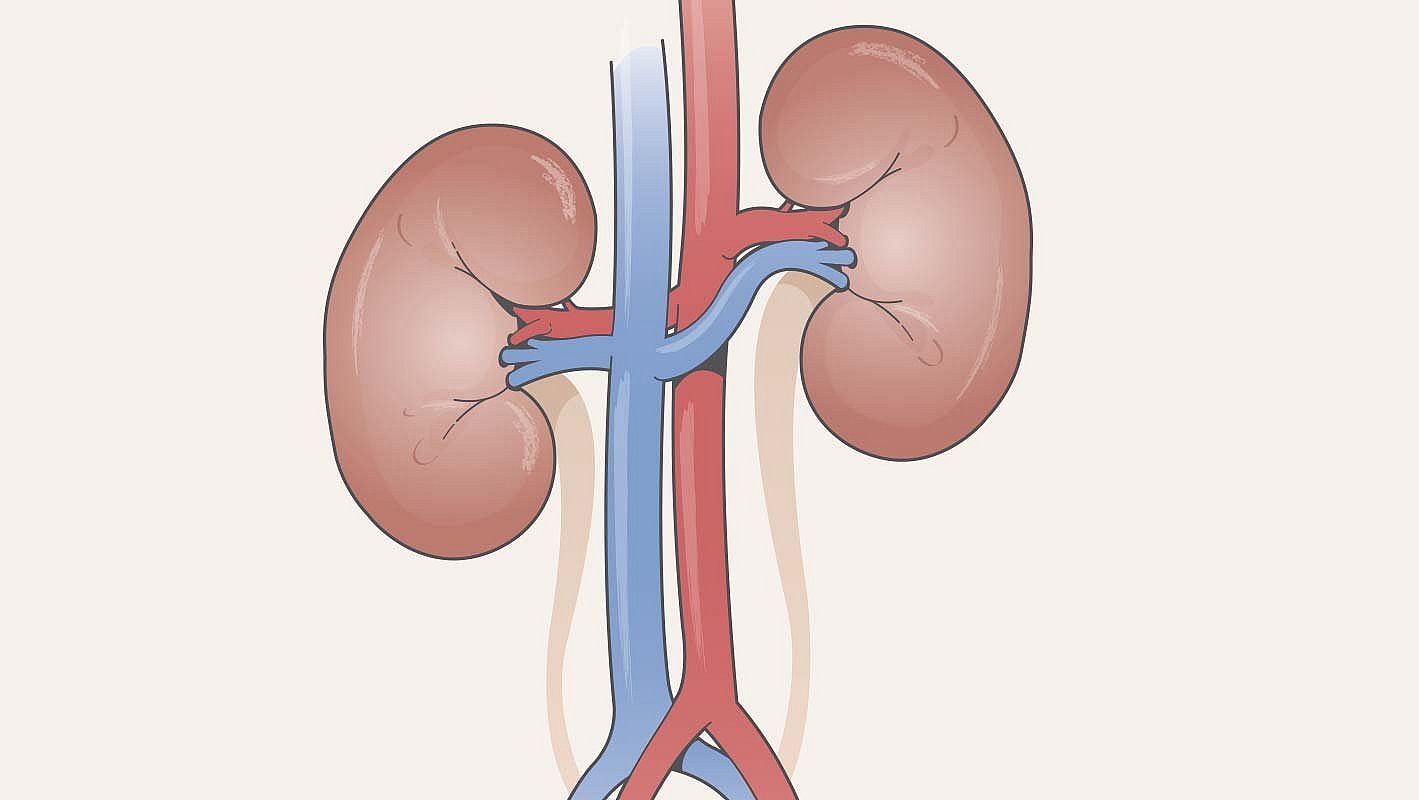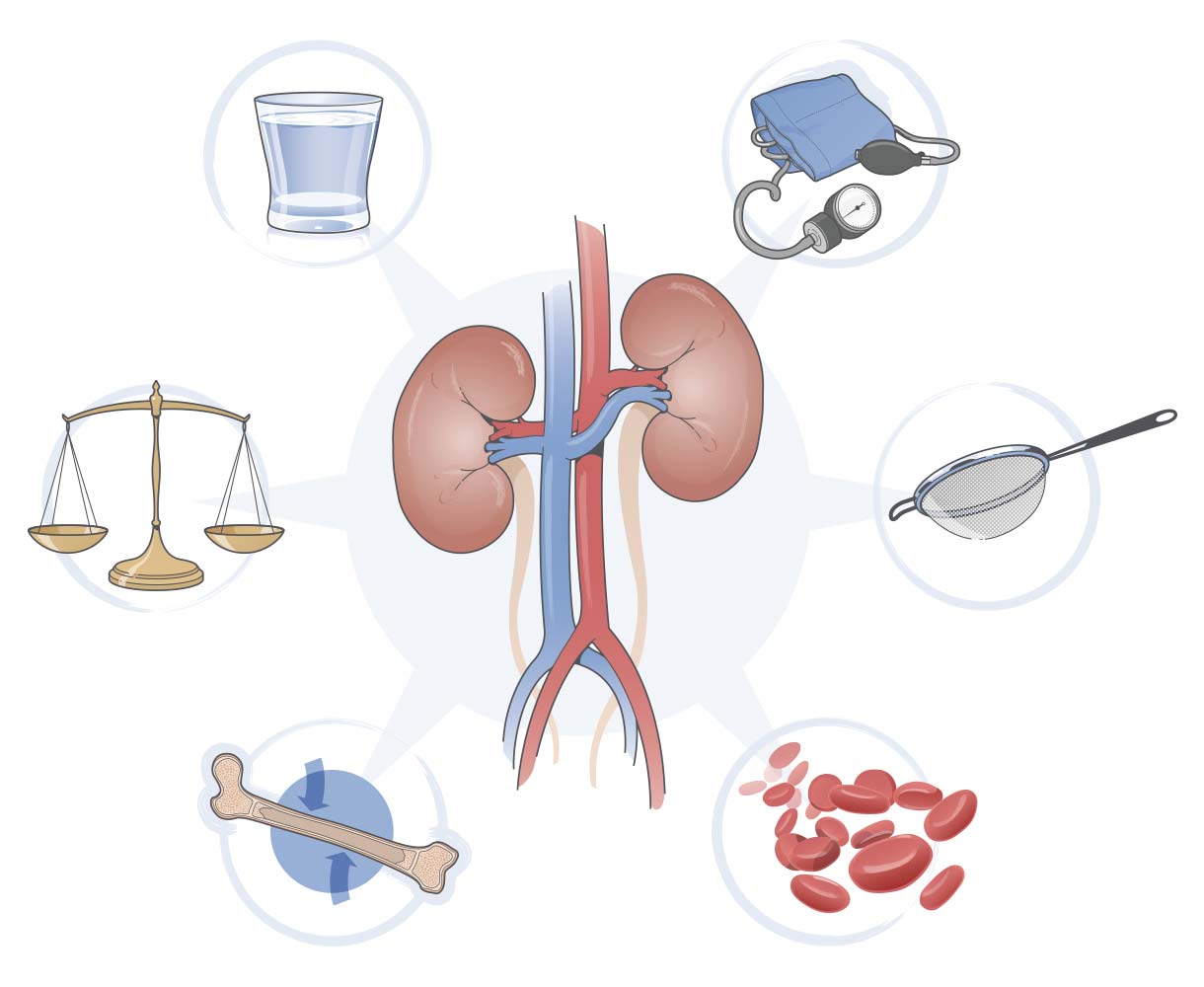Kidney disease

You have two kidneys.
They are bean-shaped and each about the size of your fists. They are located at either side of the spine near the middle of your back. Most people think their kidneys are only responsible for producing urine.
In fact, kidneys accumulate urine and dispose of it through the urinary tract. Excess water and toxins from metabolic processes, along with urine, are removed from the body as if through a filter. In addition, the acid-base-balance is regulated by the kidneys to prevent excess acidity in the blood.
The kidneys also have an important function in regulating the blood pressure by producing hormones. Hormones from the kidneys, such as Erythropoietin, control the production of blood cells in the bone marrow. Kidneys also influence the amount of calcium in the blood and the production of Vitamin D. This vitamin is needed in mineralization, which helps to provide stability of bones.
Did you know?
- The kidneys remove excess body water and waste products 24 hours a day
- Healthy kidneys clean the blood around 300 times each day
- This means that on average 1,500 liters of blood pass through the kidneys every day
What causes chronic kidney disease?
Chronic kidney disease (CKD) is a long, usually slow, process where the kidneys gradually lose function. In the beginning, you may not have noticed that you are suffering from chronic kidney disease. The early signs can be subtle, so you may not notice you had symptoms.
The diagnosis of kidney failure is usually made through blood tests measuring BUN, creatinine and glomerular filtration rate (GFR). The blood test estimates how much blood passes through the glomeruli each minute. Glomeruli are the tiny filters in the kidneys that remove waste from blood.
Chronic kidney disease can be classified in 5 stages. The disease can take years to go from below normal kidney function (CKD stage 1) to Chronic Kidney Failure (CKD stage 5). The chronic form is permanent kidney damage caused, for example, by diabetes, high blood pressure (hypertension), various kidney tissue infections (glomerulonephritis) and excessive use of some medications that may reduce long-term kidney function.
Since it may be possible to slow down the progression of the disease in early stages, it is vital to get an early diagnosis and to work closely with your doctor to find the right treatment.
Signs and symptoms
The warning signs, and symptoms, of chronic kidney disease are not always obvious. A lot of patients may suffer from chronic kidney disease, without knowing it.
What are possible warning signs?
- Less urine production
- Swelling: in hands, face and legs
- Shortness of breath
- Difficulty sleeping
- Appetite loss, nausea, vomiting
- High blood pressure
- Feeling cold and tired
The sooner you know the signs, the better the doctor can intervene and find a treatment. The right aid at the right time can influence the progress of kidney disease.

What lifestyle changes may help?
In addition to various treatment methods, a change in lifestyle may reduce the progression of chronic kidney disease.
- Control high blood pressure, blood sugar
- Eat a healthy diet (or lower-protein, or lower salt diet)
- Lose weight
- Start 3 x 30 min aerobic workouts
- Quit smoking
- Avoid certain pain medications
But always follow your doctors advice, and follow medical advice, before undertaking any major changes.


